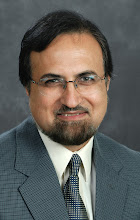Some thoughts that come to mind:
- Is the current classification of psychiatric disorders useful in psychiatric practice? What might be a more useful classification system?
- In our enthusiasm for newer drugs, have been abandoned the more effective antidepressants?
- Are the second generation antipsychotics really an advance, or are they merely draining our mental health budget?
- Can we prevent or reduce the burden of mental illness in future generations by massively intervening in our schools?
- Is therapy through the internet the wave of the future?
Perminder

Diagnosis
ReplyDeleteI believe that a specific categorical diagnosis often has an essence that can be somewhat difficult to operationalize. Such diagnoses seem to be discrete nodes in the symptomatic landscape that consists of interwoven dimensional threads. When seen they are readily recognizable. No check lits are needed.
Several diagnostic concepts have a range of convenience beyond which they cannot be applied. In some ways we should look at the goodness of fit between the presenting clinical situation and discrete diagnostic syndromes. I do not think operational criteria really help in these situations if the fit is not there.
One wonders whether it is possible to operationalize meaningful discrete and valid diagnostic entities (with substantial treatment and prognostic value) that would apply to majority of patient population. Essentially we may have to create a hybrid system that combines dimensional and categorical approaches.
A common example of limitations of present day categorical classification is exemplified by the diagnosis of major depression. To classify a patient with discrete endogenous melancholic depression (with long normal inter episode functioning) in the same category as a person with clearly reactive but severe depressive symptoms leaves experienced psychiatrists greatly dissatisfied.
Old medicines versus new
ReplyDeleteAgain the concept of goodness of fit comes to mind. New is not necessarily better than old nor is more better than less. I have patients with typical Paranoid Schizophrenia who are doing well on 0.5 mg of haloperidol per day and I have those who need 30 mg of Olanzapine or 320 mg of Ziprasidone per day. In different depressed patients, I see similar efficacy+ tolerability profiles with tricyclics, SSRIs, SNRIs, and other classes of antidepressants.
Faulty generalizations appear common in present-day psychopharmacology. We would avoid these generalizations if we respect diversity in human Neurobiology and accept limitations in psychiatric diagnoses.